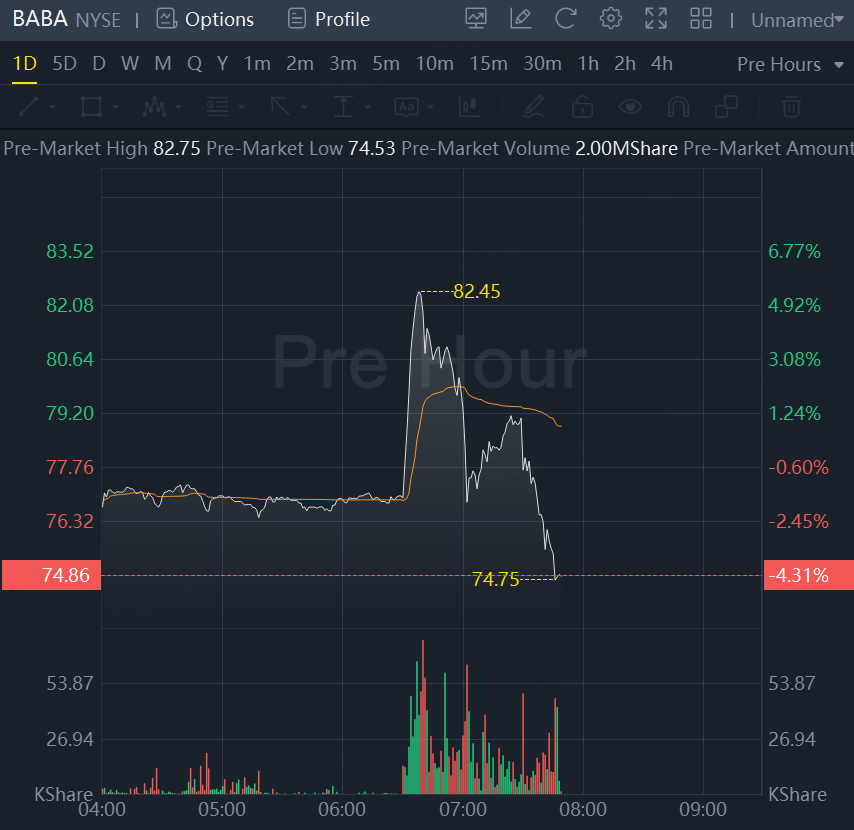China's Alibaba Group Holding on Wednesday missed analysts' estimates for third-quarter revenue, hurt by softness in the retail market and sagging economic recovery in the world's second-largest economy.
Alibaba green-lit another $25 billion in stock repurchases, appealing to investors worried about plateauing growth at a Chinese e-commerce pioneer struggling to fend off new rivals such as PDD Holdings Inc.
The internet company’s board approved the expansion of an existing buyback program that was already among the country’s largest, encompassing about $9.5 billion last year alone. Its shares gained briefly by more than 5% before giving up those gains in pre-market trading in New York.
Net income attributable to ordinary shareholders was 14.4 million yuan ($2 million) and net income was 10.7 million yuan ($1.51 million), a decrease of 77%.
Alibaba announced the split of its business into six units last March in a transition overseen by CEO Eddie Wu and Chairman Joe Tsai, both Alibaba co-founders.
The company said in December that Wu, group CEO since September, would directly oversee its domestic e-commerce arm, increasing his focus on the core divisions of the company as it combats slower earnings growth and rising competition.
"Our top priority is to reignite the growth of our core businesses, e-commerce and cloud computing," Wu said on Wednesday.
Alibaba is under pressure as consumers in China, the world's second-largest economy, have been cutting costs in response to a stuttering post-COVID recovery, boosting low-cost domestic e-commerce players such as PDD Holdings.
PDD, which owns Pinduoduo and overseas-focused platform Temu, soared past Alibaba on Dec. 1 to become the most valuable Chinese e-commerce company after Morgan Stanley downgraded Alibaba on concerns over slower turnaround in its cloud business and customer management revenue.
Alibaba scrapped plans to spin off its cloud business last year, citing uncertainties over U.S. curbs on exports to China of chips used in artificial intelligence applications, in a big blow to its market value at the time.
Last week, sources told Reuters that Alibaba was looking to sell a number of consumer sector assets, including its grocery business Freshippo, which has been locked in a price war with Walmart's membership chain Sam's Club, leading both sides to cut prices on popular items.
A Freshippo spokesperson had denied the reports of a potential sale.
Alibaba's International Digital Commerce segment, which operates various retail and wholesale marketplaces including AliExpress and Alibaba.com., performed strongly, with AliExpress orders rising 60% on the year.
($1 = 7.1941 Chinese yuan renminbi)

